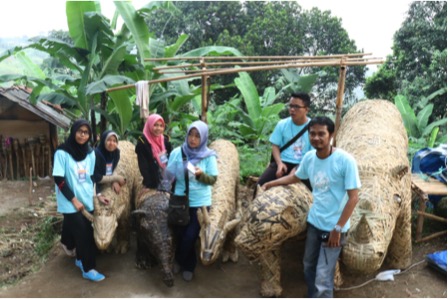Youth Engagement for Sustainable Futures
In a world facing unprecedented challenges such as climate change, inequality, and social unrest, the role of youth in shaping sustainable futures has never been more critical. The United Nations Sustainable Development Goals (SDGs) serve as a blueprint for addressing these global issues, and engaging young people is vital for accomplishing these objectives. This article explores how youth engagement for sustainable futures can be harnessed through various avenues, emphasizing the importance of their involvement in policy-making, education, community initiatives, and technological innovation. Posted by https://sdg2030indonesia.org/
תוכן עניינים
- 1 The Importance of Youth Engagement in Sustainable Development
- 2 Education: A Pillar of Youth Engagement for Sustainable Futures
- 3 Technology as a Tool for Engaging Youth in Sustainable Practices
- 4 Collaborating with Stakeholders for Sustainable Outcomes
- 5 FAQs
- 5.1 Why is youth engagement crucial for sustainable development?
- 5.2 How can I get involved in youth engagement initiatives?
- 5.3 What role does education play in youth engagement for sustainability?
- 5.4 How can technology enhance youth engagement in sustainability?
- 5.5 What types of partnerships are most beneficial for youth engagement?
- 6 Conclusion
The Importance of Youth Engagement in Sustainable Development


Youth are not just passive observers; they are powerful agents of change. Their energy, creativity, and idealism make them uniquely positioned to tackle complex global issues.
Shaping Tomorrow’s Leaders
The current generation of youth will become leaders of tomorrow.
They possess fresh perspectives that can challenge the status quo. When young people are involved in conversations about sustainability, they bring new ideas that can lead to innovative solutions. By cultivating leadership skills among youth, we prepare them to advocate for sustainable practices within their communities effectively.
Engaging youth also encourages them to take ownership of their environment. Programs that promote leadership development empower young people to initiate projects that directly affect their lives and surroundings, fostering a sense of responsibility towards sustainable practices.
Bridging Generational Gaps
One significant barrier to effective action on sustainability is the generational gap in perspectives and priorities.
By encouraging youth engagement, we create a platform for intergenerational dialogue. Young people can share their views with older generations, who may have different experiences and knowledge bases. This exchange can lead to more holistic approaches to sustainability that consider the insights and wisdom of both younger and older community members.
Moreover, bridging this gap helps dispel misconceptions and stereotypes regarding youth disengagement. Engaged youth can demonstrate their commitment to sustainability, thereby inspiring older generations to reconsider their own roles in these initiatives.
Driving Local Change
Local communities are often the first places where the impacts of global issues are felt.
Youth engagement empowers young people to identify local problems and devise solutions tailored to their unique contexts. Whether it’s organizing clean-up drives, initiating recycling programs, or advocating for renewable energy, youth can drive local change. Their enthusiasm can galvanize other community members to participate, amplifying the impact of their efforts.
Through localized initiatives, young individuals can learn firsthand about the challenges their communities face and the importance of sustainable practices. This practical experience cultivates a deeper understanding of environmental and social issues, motivating them to pursue long-term solutions.
Influencing Policy
Young people must not only engage at the grassroots level but also influence policies that govern their futures.
When youth advocate for sustainability, they contribute valuable insights that policymakers might overlook. Engaging with decision-makers can include participating in public forums, submitting proposals, or joining advisory councils focused on sustainability.
As digital natives, today’s youth also harness social media platforms to raise awareness, mobilize supporters, and hold leaders accountable. By leveraging technology, young advocates can reach larger audiences and create movements that demand action from policymakers.
Education: A Pillar of Youth Engagement for Sustainable Futures
Education serves as the foundation for youth engagement, providing the knowledge and skills necessary to address sustainability challenges effectively.
Integrating Sustainability into Curricula
To foster an informed generation, educational institutions need to incorporate sustainability principles across curricula.
Subjects like science, economics, and social studies should include discussions on environmental issues, resource management, and social equity. By doing so, students gain a well-rounded understanding of sustainability, empowering them to think critically about their choices and actions.
Moreover, incorporating project-based learning that emphasizes real-world problem-solving enables youth to apply their academic knowledge to practical situations. This hands-on approach promotes active engagement and encourages collaboration among students.
Community-Based Learning
Education doesn’t solely belong within classroom walls; it extends into communities.
Experiential learning opportunities allows youth to interact with local organizations, businesses, and government entities engaged in sustainability initiatives. For instance, internships, volunteer work, and service-learning projects provide practical insights while connecting youth to their communities.
Such experiences help build networks of support, allowing young people to collaborate with mentors, peers, and like-minded individuals passionate about sustainability. This network can inspire further action and innovation.
Promoting Critical Thinking and Advocacy Skills
Beyond knowledge acquisition, education should focus on developing critical thinking and advocacy skills.
Courses that encourage debate, research, and analysis help young people formulate their viewpoints on sustainability issues. These skills are essential for advocating for change in both local and global contexts.
Teaching youth how to engage in constructive discourse prepares them to participate actively in discussions about sustainability, whether in classrooms, community forums, or online platforms. Empowering young people with these skills ensures they can voice their opinions and influence decisions that affect their futures.
Technology as a Tool for Engaging Youth in Sustainable Practices

In today's digital age, technology plays a central role in youth engagement for sustainability.
Social Media and Awareness Campaigns
Social media platforms are powerful tools for raising awareness and mobilizing youth around sustainability issues.
Young people can leverage platforms like Instagram, Twitter, and TikTok to share information, engage in conversations, and inspire others to take action. Viral campaigns can amplify messages, reaching diverse audiences quickly and effectively.
Furthermore, creative content—such as videos, infographics, and blogs—can communicate complex ideas relating to sustainability in accessible and relatable ways. By harnessing technology and social media, youth can influence public perception and encourage collective action toward sustainable living.
Innovative Solutions via Technology
Technology also presents unique opportunities for youth to create innovative solutions for sustainability challenges.
From coding apps that promote eco-friendly habits to developing platforms that connect community members for collaborative projects, technological innovation holds immense potential. Educating and encouraging young individuals to explore fields like engineering, computer science, and environmental technology can yield groundbreaking advancements in sustainability.
Hackathons and tech competitions focused on sustainability themes foster creativity and collaboration among young innovators. These events encourage participants to think outside the box, leading to inventive solutions that can be adopted by communities worldwide.
Online Communities and Global Networks
Digital connectivity allows youth to form online communities that transcend geographical boundaries.
These virtual spaces foster collaboration, knowledge-sharing, and networking among young advocates for sustainability. Through forums, webinars, and collaborative projects, young people can exchange ideas and strategies, drawing inspiration from one another.
Global networks amplify the voices of youth, enhancing their ability to effect change on a broader scale. By uniting young advocates from diverse backgrounds and regions, we create a powerful force advocating for sustainable futures.
Collaborating with Stakeholders for Sustainable Outcomes

Collaboration is essential for achieving sustainable outcomes and enhancing youth engagement initiatives.
Partnerships with Governments and NGOs
Engaging with governmental bodies and non-governmental organizations (NGOs) provides youth with resources, expertise, and platforms to amplify their impact.
Governments can create youth councils or advisory boards to facilitate direct communication between young people and policymakers. Such initiatives ensure that youth perspectives are considered in decision-making processes.
Additionally, partnerships with NGOs can provide access to training, mentorship, and funding for youth-led sustainability projects. By working together, stakeholders can harness their collective strengths to achieve common goals.
Involvement of the Private Sector
The private sector plays a crucial role in sustainability efforts.
Organizations can partner with youth to co-create initiatives that align with their corporate social responsibility (CSR) objectives, such as supporting community gardens, renewable energy projects, or educational workshops.
Engaging youth in these programs fosters a sense of ownership and pride, encouraging them to contribute meaningfully. Moreover, when companies invest in youth engagement, they cultivate a talent pipeline that values sustainability—a win-win for everyone involved.
Building a Culture of Collaboration
Creating an environment that values collaboration is key to fostering youth engagement for sustainable futures.
Educational institutions, communities, and organizations should prioritize collaboration over competition. Programs that emphasize teamwork, collective problem-solving, and shared goals foster a culture of inclusivity and mutual support.
Empowering youth to lead collaborative initiatives builds resilience, adaptability, and a lifelong commitment to sustainability. By instilling these values, we equip young people to navigate interconnected challenges in their pursuit of sustainable futures.
FAQs

Why is youth engagement crucial for sustainable development?
Youth engagement is essential because young people bring fresh perspectives, innovative ideas, and a strong commitment to making a difference. Their active participation enhances community resilience and drives meaningful change in sustainability efforts.
How can I get involved in youth engagement initiatives?
You can get involved by joining local organizations focused on sustainability, participating in community service projects, attending youth forums, or advocating for sustainable practices within your school or workplace.
What role does education play in youth engagement for sustainability?
Education equips young people with the knowledge and skills needed to understand and address sustainability challenges. Integrating sustainability into curricula and promoting critical thinking fosters informed and engaged youth.
How can technology enhance youth engagement in sustainability?
Technology facilitates communication, collaboration, and innovation, enabling youth to connect globally, share ideas, and develop creative solutions to sustainability issues. Social media, online platforms, and digital tools empower young advocates to mobilize support and drive change.
What types of partnerships are most beneficial for youth engagement?
Partnerships with governments, NGOs, and the private sector are crucial for youth engagement. These collaborations provide resources, mentorship, and platforms for youth to amplify their voices and initiatives in the realm of sustainability.
Conclusion
The significance of youth engagement for sustainable futures cannot be overstated. Harnessing the passion, creativity, and determination of young people paves the way for innovative solutions to pressing global challenges. As we continue to navigate a rapidly changing world, it is imperative that we empower youth to take an active role in shaping their futures and driving sustainability efforts. By investing in education, leveraging technology, fostering collaboration, and prioritizing youth involvement, we can build a better, more sustainable future for generations to come.



